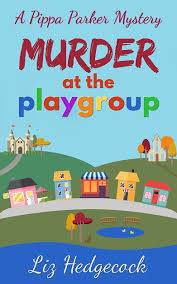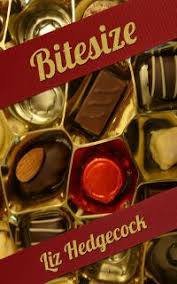What would you most like your readers to know about you that they would not likely read in your official bio?
I’m a sports nut. Though I don’t write sports romance right now, I actually do coach football—the kind with helmets and everything. It’s like contact chess: no matter how athletic your players, a coach’s mistakes—either in poor training during the week or in play calling on game day—can cost the team a game. It’s a lot of pressure, but it’s always a thrill.
Tell us Scribblers a bit about Under the Sugar Sun, and what inspired you to write this story.
My first completed manuscript was a football book—with a quarterback stepbrother hero, before that was the thing. But my husband said: “Why are you writing Midwestern contemporary sports romance when you’re a history teacher living in the Philippines? You should write something set here in the American colonial period. They sent American schoolmarms just like you over to the islands in 1901. What if one fell in love with, I don’t know, a sugar baron or something…isn’t that Jane Austen-y enough for you?”
I’m paraphrasing, but not much—the original character ideas came from my husband. And you’d think that at first I’d be like, “What a great idea! Thanks, honey!” But I was a little intimidated by the task.
Fortunately, I got over that fear quickly and dove into the research—one of my favorite parts of writing. The research showed me that the sugar industry suffered from American trade restrictions, so there was Javier’s struggle right there. And I found a letter published in the Manila Times in 1902 entitled: “Sister Hunting for Brother: He is Supposed to Be in the Philippines.” There was Georgie’s backstory. Voilà!
I fell in love with Georgie and Javier: they were smart, funny, and sexy, flawed and intriguingly complex. What traits do you believe are an absolute necessity that will keep the reader turning the pages?
Both heroes are stubborn and opinionated, but they are incredibly loyal, too. All of these traits are part of their attraction for each other. Right from the start, Javier falls for Georgie’s fire. (When you read chapter one, you’ll get what I just did there.) Even if she is rather misinformed about the Philippines at first, she does pay attention. She questions everything, including the racist underpinnings of her own colonial mission.
The problem is that Georgie does not really know she’s in a romance novel. She thinks that she’s living a Gothic adventure story, which is part of her appeal to the American reader. Having never left Boston in her life, she heads off to a very foreign land at a time when trans-Pacific travel was arduous and time-consuming. And she doesn’t do it for love, either—at least, not the romantic kind. Her challenge will be to set aside some of her old loyalties in order to embrace the new ones right in front of her.
Javier’s loyalty is more straightforward. Once he gives her his heart, it’s hers forever. The problem is that he falls in love with a woman who may signal the end of his way of life—quite literally. Not only does she represent the foreign government squeezing his sugar industry, but she also questions how he runs his hacienda. As the daughter of an Irish-American seamstress, she is a working-class heroine with some radical notions. He needs to keep his family’s legacy alive—but part of that legacy is to marry and pass down his land, which he has never cared to do until he met the exact woman who could unravel it all.
The story of Georgie and Javier is one of an interracial romance, which is not so unusual. However, the Philippines is not a culture much written about. What drew you to set your story here and in this culture?
At the heart of Javier and Georgie’s romance is the important issue of race, but in a specifically Filipino way. Javier is wealthier, more educated, and more widely traveled than Georgie—typical for his class in the Philippines. Unfortunately, the American colonial order, for all its talk of merit, made him inferior solely because of color. Telling their story without recognizing this dimension would have gone beyond romanticizing history all the way to fairy tale. (I should note that the opening novella in the Sugar Sun series does involve two white Americans as the primary characters, but this is because a real life adventurer named Annabelle Kent inspired me to consider a different kind of diversity. Look her up!)
Again, though, what drew me to this whole endeavor was our countries’ shared history. The Philippines was the first major U.S. venture in overseas imperialism and one that launched over a century of intervention abroad. It started with both sides fighting a nasty guerrilla war—one that angered Muslim separatists and divided the U.S. in the midst of a presidential election. Sound familiar? At the same time, the Yanks were successful in teaching English and exporting American culture, everything from basketball to beauty pageants. In 2015, the Philippines had the highest approval ratings of the United States out of any country in the world, including the United States itself!
Part of my hope is to bring this important period of history to life. I lived and taught in the Philippines for four years, and visited for far longer than that (as my husband worked there as a photojournalist). This country—and particularly its people—helped me through a difficult time in my life, inspired my romance writing, and won my heart. Even now, while I live in New England, they are supportive. There is a thriving English-language indie romance community in the Philippines called #romanceclass. They write contemporary and new/young adult romance, yet they still spread the word about my historicals. And, truly, they are the innovators: if you want fresh contemporary romance with feels galore, check out http://romanceclassbooks.com.
What is the one thing about your heroine, Georgie, that drives her hero Javier crazy? And what is the one thing about Javier that drives Georgie crazy?
Crazy sexy or crazy frustrated? I’ll do both.
Javier is driven crazy (sexy) by Georgina’s intelligence and strength of character. Georgina is driven crazy (sexy) by Javier’s old fashioned courtship, called ligaw in Filipino. Imagine an unchaperoned London Season, but in the tropics while the hero and heroine have to hold down full-time jobs at the same time. That’s this story.
Both Javier and Georgina are driven crazy (frustrated) by one essential barrier: Javier wants all of Georgina. She came for a two-year contract, but he wants her to settle permanently, accept his country in her heart, and raise children with him. That is a lot to ask in 1902, even without the colonial-racial component. The sexual frustration is one thing, but happily ever after is another.
How much influence do your characters have on the direction the story takes?
I think characters should direct the story. There are at least two layers of conflict in any good romance: (1) the relationship itself (is he/she The One?); and (2) each character’s own personal objective. If the characters are fully-developed people, their hopes and dreams cannot be shoved aside, even for love. For example, Javier wants to save his hacienda and see a strong, independent Philippines. Georgina wants to find her brother, an American soldier lost in action in the Philippine-American War, and take him home. Had these two characters not met each other, they would have been working on those missions independently, but because—boom!—they meet, and—wow!—they want each other, they have to find a solution to their individual conflicts that allows for the relationship to blossom. Romance does not erase everything about a person outside of the relationship: that is co-dependence, not love.
Do you figure out deep backstory for each of your characters before beginning, or invent it on the fly as you write?
You often hear authors say, “My characters live in my head,” and it sounds so trite and, honestly, a little precious. So, I’ll put it this way: my characters and I drive each other crazy. I can’t get them out of my head, but at least while they’re there I ask them why they do the things they do. I end up with lots of backstory that I do not put in the books. My software, Scrivener, allows me to save detailed files and deleted scenes about each character. Even my villains have backstories and—sometimes—redemptions and quasi-redemptions (even if only in my head).
Do your stories have a common thread apart from the romance element?
My take on historical fiction is unusual. I look for the outliers—the obscure, strange, and even dangerous people in what is called micro-history. Though they may not be average, they are real. Real vignettes pepper my writing, including: the cholera house burnings, a missing soldier brother, the snake scene, the dinner with Pedro, the shooting on the hacienda, and so much more. I lead a workshop on this process for writers because it is that important to how and what I write.
Who was your favorite secondary character to write, and do you see them having their own story to tell?
Just one? That’s a tough choice. My readers would probably say Father Andrés (and, yes, he has his own story in book three, Sugar Communion), but for me it was Allegra (who is the heroine of book two, Sugar Moon). During my research, I found an old lantern slide of a beautiful Filipina with a “WTF?” look on her face. Knowing that she is looking at an American photographer that way, I thought: “Wow. Who are you? I like you.” And, thus, Allegra Alazas was born. She needs every ounce of audaciousness in order to handle her anti-hero, Ben Potter, Georgie’s brother. (By the way, the slide is on my Under the Sugar Sun Pinterest site.)
How much time do you put into research before you begin writing?
I have over 1800 sources in my bibliography, which—now that you’ve read my other answers—probably doesn’t surprise you. You might say that I do too much research. If I have a character taking a steamship from Manila to Dumaguete, I look up the name of a real ship that plied that route in 1902: the S.S. Elcano. That’s compulsive, I know, but I love the challenge.
On the other hand, I am not as historically strict with diction or accents—though I do make sure all vocabulary was available at the time, even if not common. My style is modern because I want the story to read smoothly.
Are you a panster or an outliner?
Under the Sugar Sun was pantsed, which meant it took me twelve drafts or more to get it right. I don’t do that anymore. I still brainstorm for a while, jotting down all sorts of ideas that I get while I run, while I commute, or while I lie down to sleep at night. It’s a jumble and a mess, but I do believe that’s where creativity starts. That’s my pantsing phase.
But then I plan. Once I find a coherent story line, I write out a synopsis. I show this to my husband, who is great with story arcs and conflict. He asks questions or gives me notes, and I go back to brainstorming until I hand him a synopsis he likes. I turn that general plan into a chapter outline. On Scrivener, I create files for each scene with the appropriate part of the chapter plan in the notes sidebar. Once that’s ready, I write. Whew!
However, some flexibility is key. I may veer away from the plan as I write a scene, but I must achieve the designated objective. Each scene must move the plot forward. In the end, I hope to only rewrite a book five or six times, which is about where I am with Sugar Moon (coming in late 2016).
If this story were to be made into a movie, and you could cast anyone to play the roles of Georgie and Javier, who would you choose?
I think about this all the time—not as a movie, but as a Filipino teleserye. This is why Pinterest was created, in my opinion. I have actors, sets, and costumes on there. In my mind, Javier was always singer Enrique Iglesias, a Filipino-Spaniard; and Georgina was actress Karen Gillan, the clever redhead of Doctor Who fame.
Do you have critique partners?
I’ve used critique partners in the Philippines and in my home RWA chapter (NECRWA). However, my most important CP/editor/proofreader/cover designer/technical expert is my husband. He is the entire back end of our small indie publishing enterprise, and I could not be luckier to have his input and support.
Do you write to a specific word count daily or write to the inspiration and mood of your muse?
While teaching at a boarding school (sometimes a 24/7 job), it is hard to demand a daily word count out of myself, but I require that I touch an active manuscript, brainstorming board, or even blog post at least once every day. Sometimes, though, the busier I am at the day job, the more I want to write—and the more productive I am at it. Compared to grading piles and piles of adolescent essays, writing my own stuff is pure joy.
On the weekends or during the summers, I write every day. If I am writing new words, I try to draft a full scene at a time (around 2000 words or so). If revising, I can comb through three or four scenes in a day, and then go back to them the next day. I polish and polish until I feel I can move on.
If you were going to give only one tip to an aspiring writer, what would it be?
Write what you love.
Because I work in a high-powered academic community, I first tried to write the Great American Novel. Nothing less would do. Sure, I dabbled in genre fiction—science fiction first, then romance—but I kept hitting my head against a wall of my own literary snobbery. Guess what? I got a concussion. I was not meant to write highfalutin “literature.” Frankly, I do not even like reading it.
I like romance because it is character-driven storytelling with an uplifting ending. I won’t write anything else now. Since I came to this realization, I have completed five books and published two so far. I barely finished a chapter of my Great American Novel.
This lesson can apply to subgenre, too. Don’t write erotica if you’re squeamish about genitalia. Write what you love because that’s the only way to get your butt in the chair.
What books or other projects do you have coming out in the near future?
The Sugar Sun series will be three full-sized novels with a smattering of novellas. One of the novellas—a redemption of a secondary character named Rosa Ramos—is in the editing stage now. That will come out in September or October of 2016.
Ben and Allegra’s story, book two of the series, will hopefully come out before the holiday season. I am doing one last rewrite before the editor gets a hold of it.
Finally, there is Andrés’s story, which is eagerly anticipated by some of my readers. Andrés himself is a little concerned about exactly how eagerly they anticipate his fall from the priesthood, so he says I can hold off on that book a while. But it’s planned and started, and it will be out in 2017, no matter what my noble priest thinks! (See, I told you, the characters haunt me all day long. Sometimes, when I am doing something else, they stand and tap their feet impatiently. Psychologically, it is not a good sign.)







































